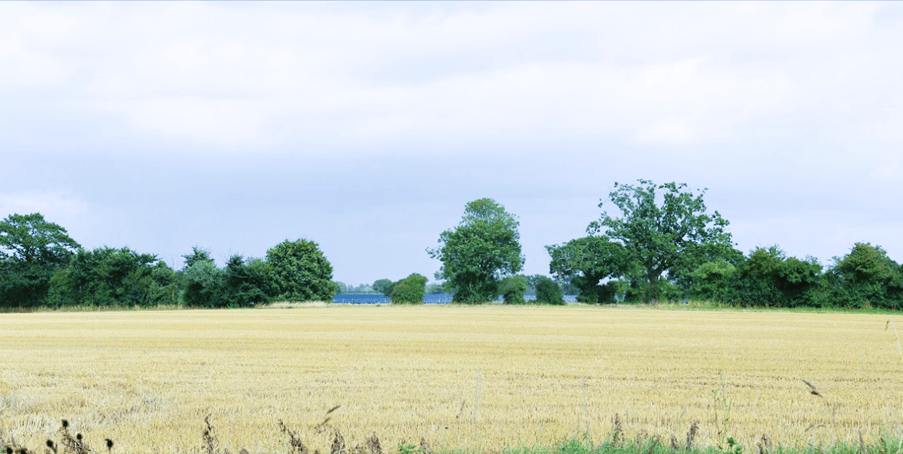- Third Revolution Projects Newsletter
- Posts
- Newsletter
Newsletter
June 2025

The last few months have marked a number of milestones for Third Revolution Projects (TRP), marked by strategic discussions, key project approvals, and industry engagement.
Our Scotland Business Roundtable brought together sector leaders to tackle the future of energy, infrastructure and spatial planning, cementing the firm’s leadership in sustainable development.
Planning consent was secured for a Battery Energy Storage System (BESS) in South Staffordshire, following sensitive design revisions. In East Suffolk, the Apple Tree solar and battery project was also approved. Meanwhile, the team celebrated a major win in Edinburgh, successfully appealing for a short-term let certificate under strict local regulations.
Our Team Away Day earlier in May fostered collaboration and innovation, while recent analysis from the team has explored how data centres might fit into the NSIP framework as digital infrastructure expands. Post-local elections, TRP is helping clients respond to shifting local politics by integrating socio-economic benefits into renewable projects.
Finally, TRP’s presence at UKREiiF in Leeds underscored its commitment to shaping planning and energy policy, with lively debates on rapid infrastructure change. These efforts reflect our holistic approach, driving progress at the intersection of planning, people, and place.
Headlines
A recent roundtable hosted by TRP brought together leaders from planning, energy, and development to explore how cross-sector collaboration, innovative grid solutions, and strategic spatial planning can unlock the full potential of renewable energy infrastructure in the UK.
The May 2025 local elections marked a political shift that could challenge renewable energy projects in rural England, making it essential for developers to demonstrate strong local benefits through socio-economic value and community engagement to secure planning consent.
We are starting to see a growing trend in the shift from hyperscale data centres to more decentralised edge data centres.
TRP has won an appeal for a for a Certificate of Lawfulness of a STL in Edinburgh led by our Scotland office.
The TRP team has secured planning consent for a Battery Energy System in the Grey Belt in South Staffordshire.
Covering 41.7 hectares the solar and BESS farm is sufficient to generate power for approximately 10,518 homes.
TRP has strengthened its in-house expertise by welcoming Dan Hay and Rowan Kinnaird to lead its new socioeconomic analysis team, expanding its planning services to better demonstrate the economic and social value of projects and help clients navigate the increasingly complex planning landscape.
Members of the TRP team made a strong impression at their first UKReiiF in Leeds, hosting a well-attended breakfast roundtable with Town Legal on the future of energy infrastructure, while gaining key insights across planning reform, data centres, co-living, and strategic land development.
We held a dynamic Team Away Day at the RSA in May, combining strategic planning and business development with creative workshops, team bonding, and a fun scavenger hunt, sparking fresh ideas and energy for the year ahead.
TRP Scotland Business Roundtable ‘Shaping the Future of Scotland and the UK: Energy, Infrastructure & Renewables’

In March, as part of the launch of the new Third Revolution Projects office in Edinburgh, we hosted a high-level roundtable discussion in Scotland, bringing together experts from across the planning, development, and energy sectors. The focus of the event was the pressing issue of energy infrastructure renewables and their role in strategic development and spatial planning.
With decarbonisation targets looming - 2045 for Scotland and 2050 across the rest of the UK - the event tackled the need for coordinated, cross-sector responses to energy and planning challenges. The session followed the circulation of a detailed briefing paper, which set the context by exploring the Drivers & Challenges, Opportunities, and Responses shaping the energy transition.
Key Themes from the Briefing and Discussion
Third Revolution led the conversation by emphasising how rapid technological change, evolving national policy, and falling renewable energy costs are transforming the development landscape. With a shift away from traditional fossil fuels, integrating new energy technologies, such as heat pumps, battery storage, and district heating, is now a central concern for strategic developments.
Participants discussed the evolving complexity of the UK grid and the need for reforms that can unlock development potential. As one attendee noted, "We are moving through a truly transitional time in development," highlighting the urgency for innovative and collaborative solutions.
Data Centres and Grid Capacity
A focal point of the discussion was the emergence of hyper-scale data centres. These large energy users require firm grid connections, often competing directly with residential and commercial developments for capacity. However, they can also act as catalysts for economic growth and help unlock grid connections for surrounding areas, particularly when paired with co-located renewable energy sources.
As Henry Leivers of SNRG put it: "Great group and discussion on the future of planning, infrastructure and energy. Really useful to hear the perspectives of lots of different stakeholders and share experiences of how things can be done."
Strategic Responses to Energy and Planning Challenges
Several insights emerged during the discussion:
Strategic Planning Must Integrate Grid Considerations: Without early alignment between development and grid planning, projects risk becoming unviable due to high upgrade costs.
The Role of IDNOs and Private Wire Solutions: Independent Distribution Network Operators (IDNOs) may offer more flexible, cost-effective solutions to serve new developments where traditional grid capacity is constrained.
Using High-Renewables Regions to Attract Industry: Scotland’s wind power surplus could underpin regional economic strategies, attracting high-energy industries and creating jobs.
Heating Solutions for the Future: A consensus emerged around the potential of heat pumps and district heating systems. However, technical and economic challenges remain, requiring localised, evidence-based approaches.
Financial Pressures Drive Development Decisions: Strategic land promoters often shoulder grid upgrade costs, making financial drivers more influential than spatial strategies alone.
ESG as a Development Driver: Projects aligned with Environmental, Social and Governance (ESG) criteria are better positioned to attract funding and stakeholder support.
Throughout the event, a common thread was the importance of collaboration. Attendees underscored the need for new partnerships between developers, local authorities, grid operators, and energy providers. As Steve Scott from GHD commented: "Great to meet some old colleagues/contacts and meet new contacts who it would be great to work with."
A Call to Action
The Third Revolution Projects team concluded the event with a clear message: the energy transition presents both risks and transformative opportunities. By working together, sectors can unlock grid capacity, accelerate delivery of sustainable developments, and meet our climate goals.
"Thanks to Stefano, Robert, Dan and Third Revolution Projects for hosting such an insightful and thought-provoking discussion," said John Chapman of Ardent, reflecting the sentiments of many who attended.
TRP is ready to continue the conversation. With deep expertise in planning, energy, and economics, we are here to help bring the right teams together and deliver forward-thinking solutions to today’s most complex development challenges.
If you’d like to explore how we can support your strategic projects or collaborate on energy-focused initiatives, we’d love to hear from you.

The May 2025 local elections in England, though reduced in scale due to recent devolution reforms, have brought about a notable shift in the political landscape. The shift is one that carries real implications for renewable energy development. The rise of Reform UK in rural councils, notably from Durham, Staffordshire, Lincolnshire and Derby, has altered the balance of influence across many planning authorities critical to the UK’s low-carbon future.
Reform UK’s policies include opposition to Net Zero targets, restrictions on battery storage, and proposed levies on renewable energy developers, are likely to begin shaping the tone of local decision-making. While the Labour Party maintains a national commitment to delivering green infrastructure, it is local government that ultimately controls the levers of planning consent, community engagement, and delivery on the ground. And in many areas, political sentiment is shifting.
For developers, this represents a clear challenge: it is no longer enough for projects to meet technical and environmental standards - they must also demonstrate clear, tangible local benefits.
At Third Revolution Projects, we are responding by placing greater emphasis on socio-economic value in project design. With our newly established team focused solely on socio-economic strategy, we are working with clients to identify, evidence and communicate the local impacts of renewable energy, from job creation and skills development to agricultural diversification and reinvestment in communities.
In rural areas where opposition to new infrastructure is growing more vocal, a well-developed socio-economic case can help shift the conversation. It can support elected members in their decisions, influence planning officer recommendations, and provide robust evidence in the event of an appeal. Crucially, it helps ensure communities understand these projects better.
This shift need not be a setback rather it is an opportunity. Projects which incorporate socio-economic thinking along with an effective community engagement & political engagement strategy from the outset will be best placed to gain consent and deliver long-term, locally grounded value.
If you're planning a renewable energy project in any of the areas affected by the elections, or looking to strengthen your strategy across the UK, our team can help you understand the evolving political, social, and economic landscape.
Are Data Centres NSIPs?

We are starting to see a growing trend in the shift from hyperscale data centres to more decentralised edge data centres. One potential reason is that the planning system has not yet made sufficient space within the Nationally Significant Infrastructure Project (NSIP) framework to accommodate large-scale data centre developments. This was a key takeaway from a recent webinar hosted by DLA Piper.
As an emerging technology it is safe to say that legislation and policy are still finding their feet. It’s acknowledged that, Development Consent Orders the mechanism for creating NSIPs, take a longer route to complete however, there is greater certainty and the potential to provide compulsory acquisition powers when land in the market is not available. However, this approach could be seen as top down heavy and edge data centres more in line with a bottom up approach democratising the market who would benefit from smaller scale development as well as the advantages that come with this.
Success Stories
Short Term Let (STL) Jordan Lane

TRP has won an appeal for a for a Certificate of Lawfulness of a short-term let (STL) in Edinburgh led by our Scotland office!
This was a monumental win within a strict policy environment due to the relatively recently imposed Edinburgh Short-Term Let Control Area which became effective in September 2022. The Control Area covers the entirety of the administrative area of Edinburgh City Council, being the first of its kind in Scotland. This has left many short-term let property operators preceding the Control Area in a tricky situation.
This was the case for our applicant who had been operating the property since 2018. The property has been seeing occupancy rates of 86% during peak periods, providing an important alternative for hotel accommodation during these periods.
Key argument in this appeal was demonstrating that the use does not differ from normal residential use. Some of the details outlined included that there has been no physical alterations to the property to enable the short-term use, the property being of a small size and having an average occupancy of only 2 people (eliminating the possibility of attracting a loud crowd or parties), and the property being a ground-floor flat and having an own direct access to the street meaning that guests never run into neighbours in the hallways and, therefore, do not cause noise or disturbance in common areas.
This short-term let use was concluded, on the balance of probability, to not be materially different from residential use with no significant disturbance or impact due to size and nature of the property.
This appeal decision is likely to set an interesting precedent going forward for other short-term let businesses in Scotland.
For further information get in touch with Stefano Smith or Petra Elo
Planning approval granted for 200MW Battery Energy Storage Scheme in Midlands green belt

Third Revolution Projects have secured consent for a Battery Energy Storage System via planning committee on a 5.53 hectare site in South Staffordshire Council in April 2025. The proposal will store up to 49.5MW of electricity from the grid.
Application approved for East Suffolk Solar and Battery Farm

The TRP team has secured planning consent for a solar and battery energy storage project in Halesworth, East Suffolk. Covering 41.7 hectares the solar and BESS farm is sufficient to generate power for approximately 10,518 homes.
Company News
Third Revolution Projects Secure In-House Economics & Social Impact Expertise

Rowan Kinnaird and Dan Hay
We are delighted to announce that we have secured the services of Dan Hay MRTPI MIED and Rowan Kinnaird AssocRTPI AIED, enabling our team to add economic and social impact reporting to the repertoire of life cycle planning services offered to our clients.
UKREiiF 2025
It was an excellent week attending our first UKReiiF in Leeds in late May. The team was well represented across sectors and offices with Gill, Rob, Stefano and Chloe attending events, lunches, meet ups and various CPD Sessions. These included hosting a breakfast event in collaboration with Town Legal on the topic of “What rapid changes in energy infrastructure and technologies mean for developers, local authorities, data centre providers and strategic land promoters”. The event was extremely well attended and there was a lively debate.

Breakfast Roundtable hosted by TRP and Town Legal LLP
The 3 days up in Leeds gave insightful updates to the team across various key sectors including co-living, data centres and infrastructure with excellent updates on matters such as planning reform, grey belt and spatial planning considerations.
TRP Away Day
In May, the Third Revolution Projects Team recently participated in the yearly Team Away Day at the RSA.

The day started with a team photo
The team kicked off the afternoon at the RSA at Charing Cross with a reflective meeting, looking back on the past year and sharing a forward-looking presentation on TRP’s future vision. Key themes included refining our focus areas, adapting to an ever-changing market, and staying ahead of emerging opportunities.
The second half of the meeting shifted to Business Development Strategy, featuring a series of insightful presentations followed by a hands-on workshop. In a high-energy, timed group exercise, teams were challenged to develop and pitch a bid on an assigned topic. The creativity was impressive, topics ranged from mixed-use urban extensions and ecotourism to imaginative office regeneration schemes with a creative edge.
 |  |
The afternoon continued with a Scavenger Hunt around central London collecting clues in order to solve a murder, and finished with dinner at The Refinery.
Overall it was a fantastic, productive day where many future ideas for TRP were born!